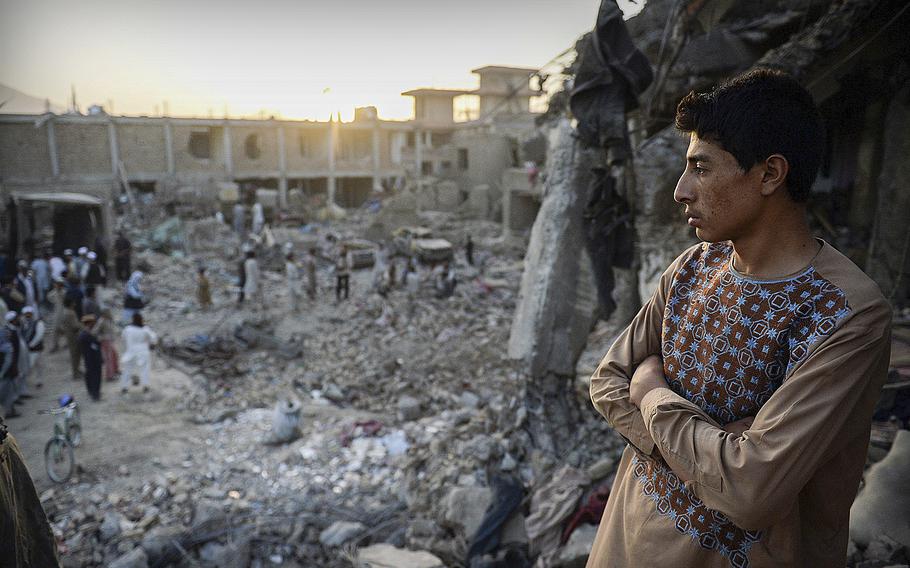WASHINGTON — The State Department named Afghanistan among the countries with the world's poorest records on human trafficking for the second year in a row, deepening questions about the fate of vulnerable Afghans when the United States withdraws its military forces from the country.
In its annual trafficking report, the State Department put Afghanistan, along with China and Russia, in a small group of countries assessed as failing to make significant efforts to combat the trade in people.
"This crime is an affront to human rights. It is an affront to human dignity," Secretary of State Antony Blinken said of the global phenomenon in an address that accompanied the release of the report.
Afghanistan was among the countries singled out for a "government policy or pattern" of human trafficking, including in Afghanistan's case the employment of child soldiers by security forces and a widespread practice called bacha bazi, which amounts to the sexual slavery of boys on government compounds, a senior State Department official told reporters, speaking on the condition of anonymity under ground rules set by the department.
The designation comes as the U.S. military continues to airlift personnel and equipment out of Afghanistan, moving closer to ending its two-decade military presence. While President Biden this spring set a Sept. 11 deadline for ending that mission, military officials say the departure could be concluded within the next week.
Taliban militants have accelerated their attacks on Afghan troops in recent months ahead of the exit of U.S. forces and most of their NATO counterparts, intensifying fears about the government's ability to hold the militants at bay — and the Taliban's willingness to engage in peace talks that U.S. officials have hoped can avert an all-out civil war.
Those concerns loomed over White House talks last week between Biden and Afghan President Ashraf Ghani. While both leaders sought to cast the situation in a positive light, with Biden vowing continued U.S. assistance for Afghanistan and Ghani promising that government forces will be able to stand alone, U.S. intelligence officials are warning the government could fall within six months.
Whether the United States can help preserve the gains that have been made since 2001 in economic development, women and minority rights, and freedom of expression will be a central test of the American legacy in Afghanistan.
It was not immediately clear how Afghanistan's inclusion in the State Department's list of "Tier 3" countries that failed to take significant action against human trafficking might affect American assistance. According to U.S. law, countries in that category may be denied non-humanitarian, non-trade assistance, and the United States may also seek to withhold financing to them from multilateral lenders. But the president can also waive those restrictions, as President Donald Trump did last year, the senior official said.
The president is expected to make a decision before the next fiscal year begins in October, the official said.
Since 2002, the United States has provided Afghanistan, still overwhelmingly reliant on outside aid, some $36 billion in civilian assistance and $88 billion in security assistance, according to the White House. The Biden administration has promised to provide billions more in coming years.
While the report found that Afghanistan has prosecuted some instances of the practice of sexual exploitation of boys, it said "the government did not investigate or prosecute many high-level security officials or government employees for bacha bazi, despite continuing reports of complicity."
In addition, the government has never prosecuted military or police officials for employing child soldiers — a practice also used by anti-government militants — the report said. Instead of protecting victims, the government has often penalized or abused them.
Other countries named in the State Department's "Tier 3" are Algeria, Comoros, Cuba, Eritrea, Guinea-Bissau, Iran, Malaysia, Myanmar (also known as Burma), Nicaragua, North Korea, South Sudan, Syria, Turkmenistan and Venezuela.

A boy looks across the devastation caused by a massive truck bomb in Kabul, Afghanistan, on Aug. 7, 2015. The bomb primarily struck civilians. (Josh Smith/Stars and Stripes)